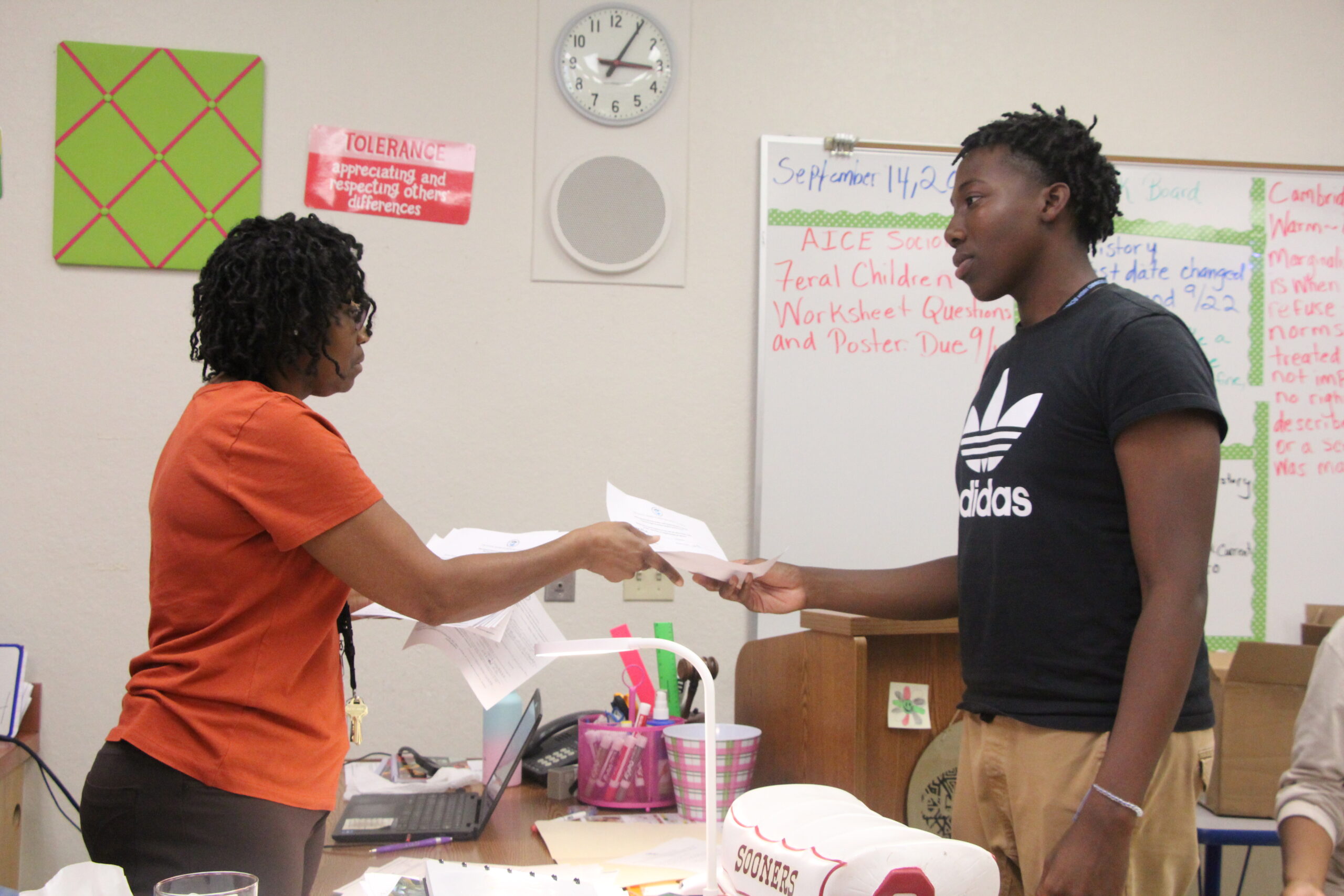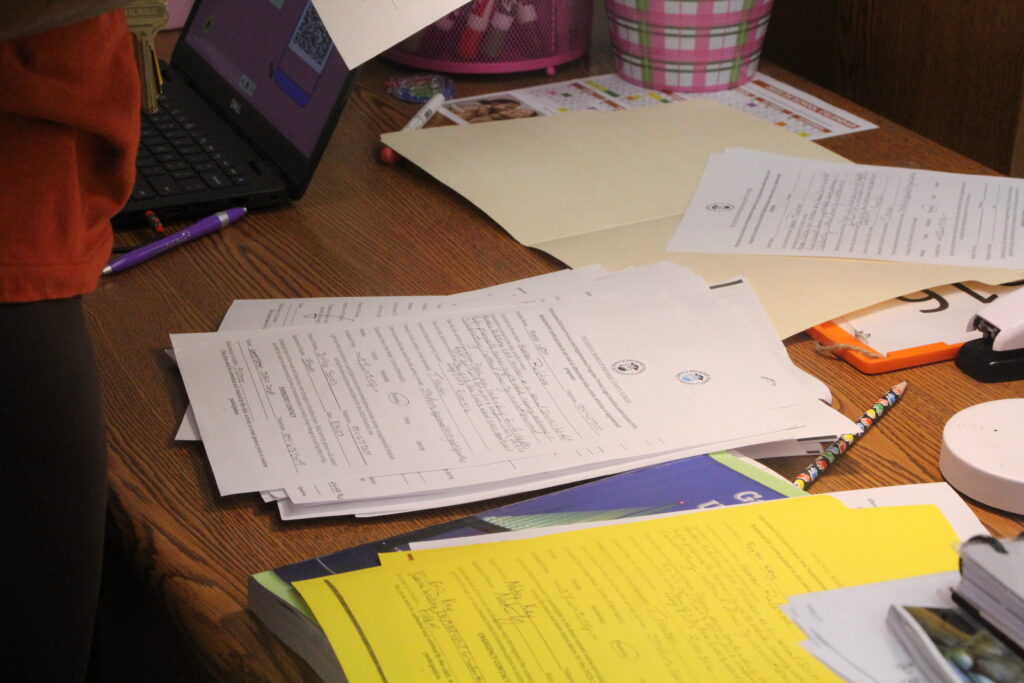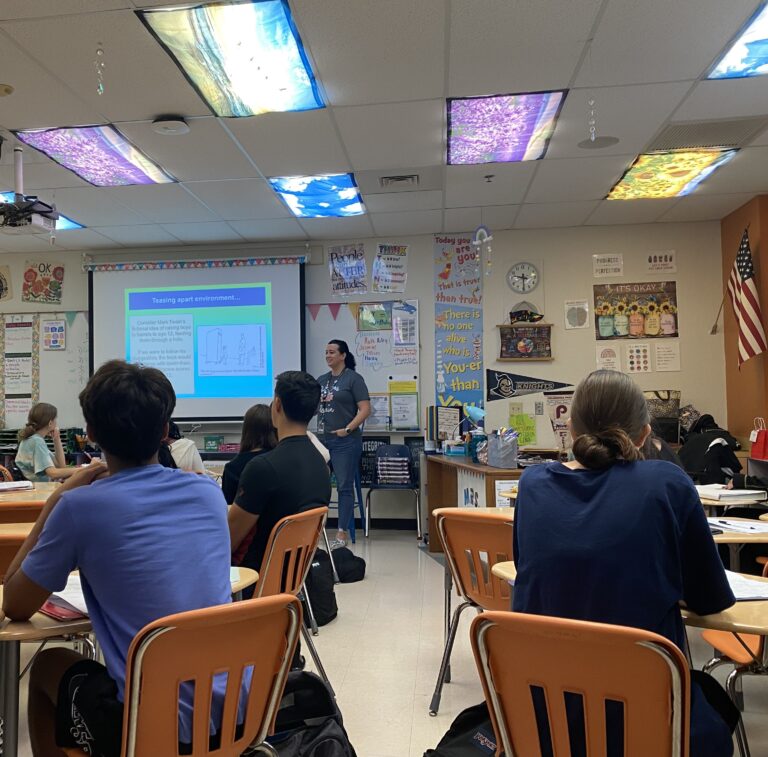
After-school activity form state policy sparks debate in Florida public schools
SIGNED PERMISSION: Freshman Oluwatobi Afode hands his signed after-school activity form to the Human Relations Club sponsor Thewander Houston. Unfortunately, after-school activity forms have caused some difficulties with the accessibility students have to clubs. Photo by Sonaiya Brown
By: Sonaiya Brown
Throughout the immersive and exciting school year, students and teachers will occasionally partake in countless extracurriculars, whether that be before or after school. However, the passing of a recent Florida state policy has made club activity a difficult feat for students. Sparking displeasure in public schools, this new policy may make extracurriculars more of a hindrance than an advantage.
Officially enacted last year on Aug. 22, The School-Sponsored Events and Activities state law requires students to provide a parent-authorized form to attend any school-sponsored activities that are not within regular campus hours including club meetings, school events, and tutoring. These forms must include student information, specificity about the activity and its description including dates, time and location.
The Florida Department of Education (FDOE) adopted that any district policies regarding extracurricular activities and supplemental programs must be consistent with the Parental Rights in Education, which reinforces parents’ fundamental right to make decisions for their children in public schools. These rules mandate the forms to inform parents about their child’s participation in before and after-school activities in Fla. school districts.
This state policy does have advantages for concerned parents, since it allows them to be aware of their child’s whereabouts outside of school hours. It encourages students to ask for parental permission before attending extracurricular activities, so parents understand the specific details about after school activities that their children are participating in.
Contrary to these benefits, the forms are tedious, stop students from completing simple tasks without parental consent and unnecessarily endanger teachers’ licenses if a student is found in their room without the appropriate form. Moreover, students might get discouraged from attending extracurricular activities if prohibited by their parents, and this may greatly impact the amount of students who go about participating in after school activities, especially for those who may forget or neglect to get the form signed.

The forms additionally restrict class review sessions and tutoring for students who need additional help. Undoubtedly, it places unwanted obstacles for teachers that put in extra effort for their students, and may further discourage students from getting any after-school assistance. When teachers were initially informed about the state policy before school began, some were taken aback.
AP U.S. Government and Politics teacher Carey LaManna has had years of experience doing before and after-school review sessions before his tests, and has also done AP exam reviews in April. He believes the forms inhibit students from attending informative reviews, and dishearten teachers from continuing their after-school reviews.
“I have not been affected yet, but it certainly discourages the types of reviews I like to do and makes it tougher for students to sit in on a club meeting to learn about it and see if they’d like to join since that can’t be done on the spur of the moment, anymore,” said LaManna.
This state policy presents an inconvenience for students who actively participate in extracurricular activities, and it is not necessary for students to document their every move before and after school hours. If the purpose of after-school activity forms are not questioned enough, then these forms will limit students’ learning opportunities and personal enjoyment when participating in their extracurricular activities.


